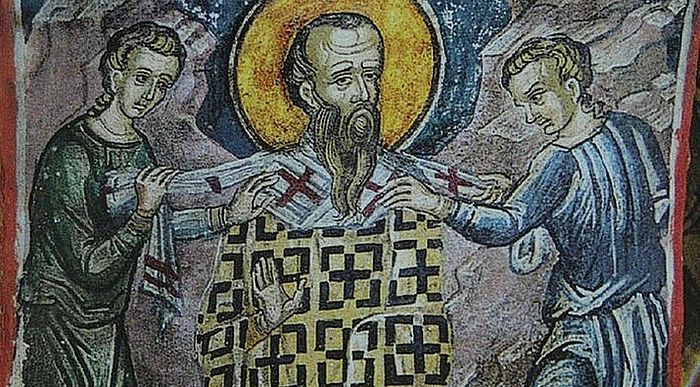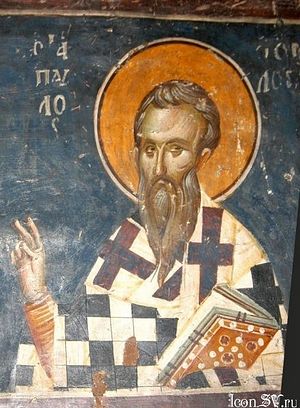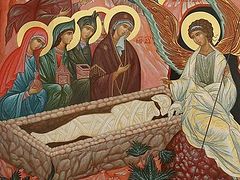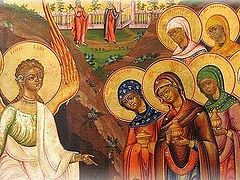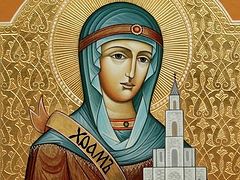One of the most difficult tasks for a Christian is to accept everything that happens with him as happening in accordance with the providence of God. It’s very hard to waive your rights for a senseless accident, an unjust coincidence, an enemy’s trick, which, one way or another, should be rectified in the name of the proverbial justice. It is difficult to reconcile yourself to circumstances, especially if they really involve a violation of moral, religious, and other laws.
In this case it leads to a struggle, a revolt against injustice, not even so much a personal offense as a feeling of responsibility for the indulgence of iniquity. After all, if you let evil go unpunished, it will spread further. This is what we often think, and from this position we begin the battle against injustice—a sincere battle, and, as it seems to us, even a sacred Christian duty.
However, in this sense of responsibility for the fate of goodness in the world there is something dangerously contradictory. The thing is that many saints have suffered from blatant injustice, and endured hardships and abuse, completely unjustified. And they did so silently—their Christian conscience did not compel them to revolt against injustice. It’s another fact, another pole of reality, which a Christian cannot but take into account.
It is on this pole that we find St. Paul, the Archbishop of Constantinople. Being elected to the patriarchal throne in 340 AD, the holy hierarch was not long to rule the flock entrusted to him. Having returned to the capital, the Arian emperor Constantius illegally deposed and banished the defender of Orthodoxy. Patriarch Paul withdrew to Rome, where other Orthodox bishops had found shelter for themselves. After the death of the Arian Patriarch Eusebius, St. Paul returned again to the cathedra and was lovingly met by his flock. However, Constantius banished him a second time. Only the intercession of the ruler of the Western Empire Constans allowed him to return again to Constantinople. However, this time the Lord did not leave the saint without a cross of confession. After the murder of his patron Constans, the holy hierarch was again banished from the capital and sent into exile in Armenia, to the city of Kukuz, where he received a martyric end. When the patriarch was serving the Divine Liturgy, the Arians burst in and strangled the saint with his episcopal omophorion…
The life of St. Paul allows us to think about the role of justice in the life of a Christian. It’s a very important question, and especially in our present circumstances. How should we struggle against the injustice which affects us personally? How should we answer the triumph of injustice in society?
To find the answer to our question, we must first of all understand one important truth. Every one of us who has crossed the threshold of the Church, having received the Good News of salvation, has already become a participant in the greatest injustice. The meaning here is that while we were yet sinners, Christ died for us (Rm. 5:8). The Savior has given us the opportunity to inherit eternal life because His love for the fallen and ungrateful creation overcame a just condemnation. We are children of Love, but not justice! Here all depends on what has real significance for someone: If you have chosen the Heavenly Kingdom, then its laws will be definitive for you. And according to these laws, you are in need of the love, mercy, and condescension of the Creator, but not a relationship of justice. And it is as true as just in regards to the life of every one of us. For, with what judgment ye judge, ye shall be judged: and with what measure ye mete, it shall be measured to you again (Mt. 7:2). Therefore, to demand justice means to be cunning, to be wrong, rather than to save the foundations of the world.
The amazing thing is that it turns out that in the Gospel we have to meet only two people: God and ourselves. If we see our neighbor there, speaking rudely with us; an officer, having lost all conscience due to bribery; a priest, addicted to money, it means the Gospel wasn’t written for us. It means we are not those “sick” in need of the Physician (cf. Mt. 9:12), we are not those publicans and sinners who ate and drank with the Son of God (cf. Mt. 2:16). It means we deny this intimacy. It is a truly terrible denial!
The Lord says explicitly, Resist not evil (Mt. 5:39). Of course, the Savior is not teaching us to consider evil normal, but is indicating the most effective way to fight with injustice—to suppress, to stop it with ourselves, not giving the chance for this disease to spread to others through our actions. Here it is very important to remember that one of the most important characteristics of true love is to sacrifice, to be giving, demanding nothing, even reciprocity and justice. In this sense, love is also unjust!
Overall, the entire life of a Christian is a labor of faith. He must learn to see the hand of God the Creator and Almighty behind the confluence of circumstances and happenstances, and then the question of justice will sound different.

